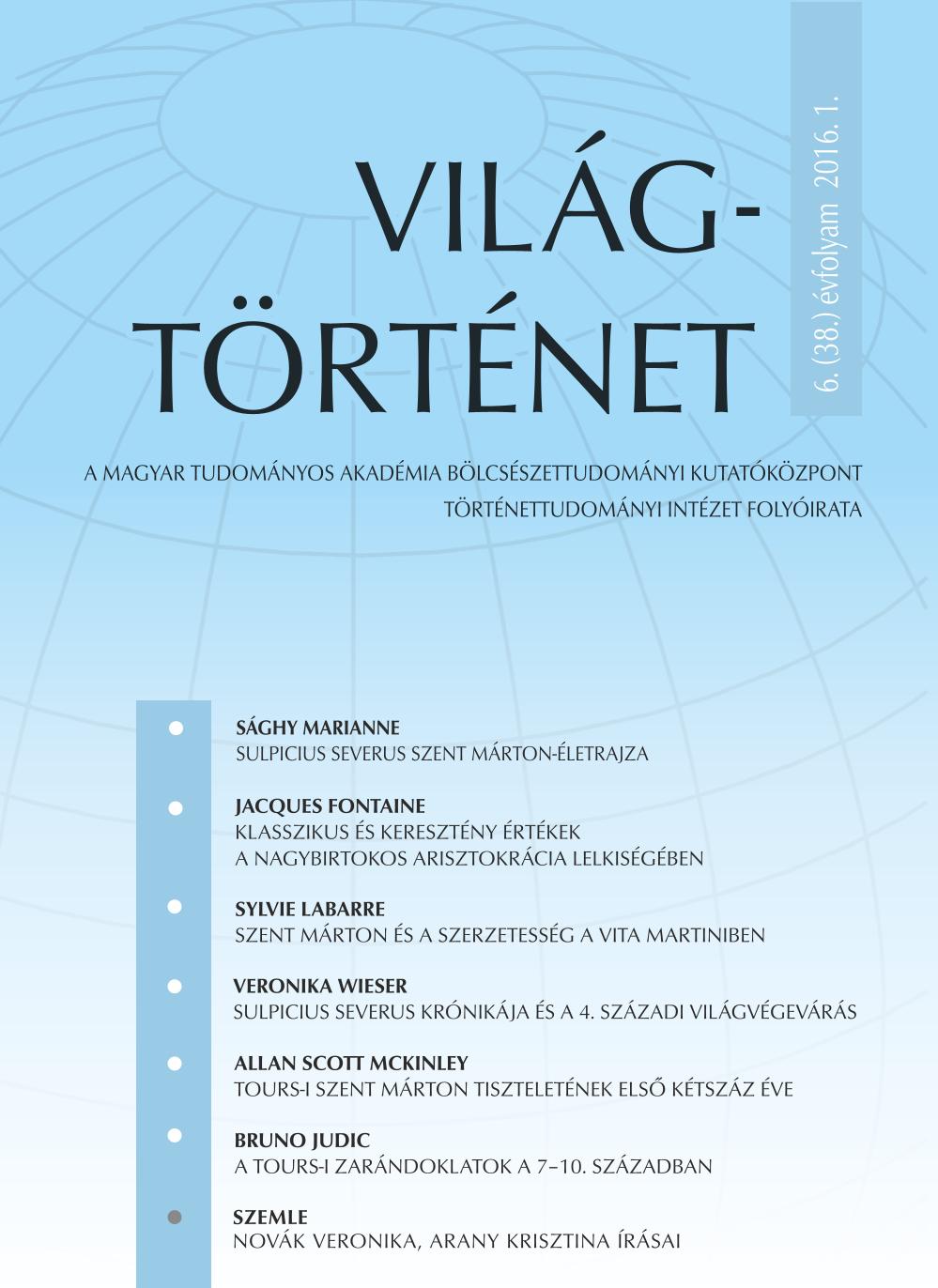Sulpicius Severus Krónikája és a 4. századi világvégevárás
The Chronicle of Sulpicius Severus and the Eschatological Expectations of the Late Fourth Century
Author(s): Veronika WieserSubject(s): Christian Theology and Religion, Ancient World, History of Religion
Published by: Magyar Tudományos Akadémia Bölcsészettudományi Kutatóközpont Történettudományi Intézet
Summary/Abstract: This paper discusses the importance of eschatological ideas within the historiographical concepts in the Late Roman Empire. It reflects how Christian scholars could use the prophecies in the Bible and their exegesis as a possibility to experiment with their ideas about temporal concepts and to express social change, crises or decline. Military conflicts between Romans and so-called Barbarians, the diversity and disunity of the Christian community accompanied by portentous signs represent the framework in which Christian intellectuals as Augustine or Jerome tried to explain their current situation in historical terms. To follow these questions this article proposes a context-orientated analysis of a rather unknown world chronicle written by Sulpicius Severus. In his chronicle the author announces the approaching end of the world but presents at the same time a vision of the Roman-Christian society that transcends the simple enumeration of apocalyptic destruction and terror. Most of all he attempts to establish a certain degree of historical continuity between the past, the present and the future of the Christian community which is at the same time inextricably connected to his own very local and specific religious context in Aquitaine.
Journal: Világtörténet
- Issue Year: 2016
- Issue No: 1
- Page Range: 87-118
- Page Count: 32
- Language: Hungarian

